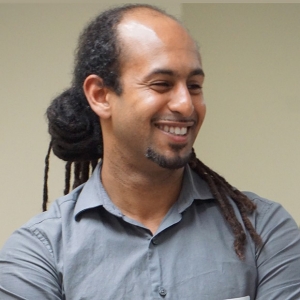As part of Boston’s education desegregation efforts in the early 90s, children like Kassa Belay were bused from inner-city schools to affluent suburbs.
It was an eye-opener on disparities, says Belay, founding member of the United for Brownsville initiative and co-director of collective impact at SCO Family of Services, one of the largest social-service agencies in New York City.
“Treating lived experience as a critical source of expertise” is central to Belay’s work in forging multi-sector partnerships between city agencies, non-profits and the families they serve to improve early-childhood systems in Brownsville, he says.
Proudest moment
“One of our first projects, Books for Brownsville, was a literacy primer for infants and toddlers using local parents’ games, stories, songs and approaches. It shifted the perspectives of service providers to see families as people to partner with rather than problems to solve.”
Biggest career challenge
“We rarely get access to data collected by government that would tell us how infants and toddlers are doing, or if their development is improving, because of our efforts.”
How the pandemic has hurt
“It has exacerbated the deep, deep inequities that have always existed for low-income Black and Brown communities. We saw reprehensible price gouging on personal protective equipment, supply-chain disruptions that made it hard to get essentials like diapers and baby formula; massive job loss that compounded food insecurity; and inequitable access to the internet that made it challenging for school-age children to use remote learning.”
Concordia’s setup for success
“Sociology equipped me with a language to talk about race, and focus on structural problems, not just individual choices as responsible for outcomes. Anthropology was a primer in appreciating different cultures without devaluing them. But beyond academics, Concordia was a diverse setting; my friends were Somali immigrants, Ethiopian Jews, Egyptian Christians, the daughter of a Mexican diplomat, Anglo-Canadians, Quebecers who were generations deep — all of that combined to set me on my path of community organizing, focusing on racial equity and anti-racism.”
Inspiring Concordia professor
“Andrew Ivaska was by far my favourite professor for his down-to-Earth teaching that brought in cultural perspectives. He made African history feel connected to the present.”


 “Concordia was a diverse setting; that set me on my path of community organizing, focusing on racial equity and anti-racism.”
“Concordia was a diverse setting; that set me on my path of community organizing, focusing on racial equity and anti-racism.”